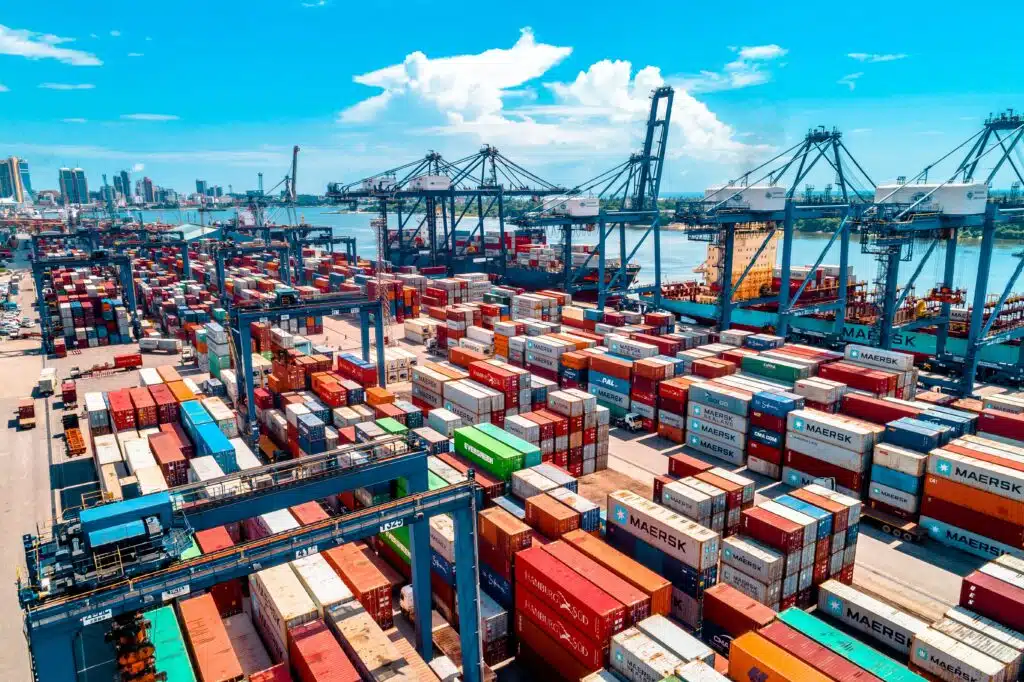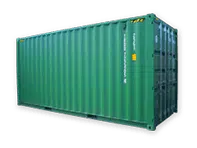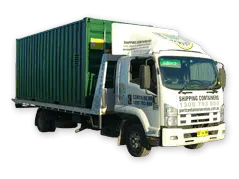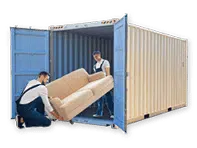Shipping containers were invented in 1956 to transport goods safely across land and sea, with the standardisation in size opening up international trade even further. The inventor, Malcolm MacLean, was undoubtedly satisfied that he’d met a global need, but he probably didn’t realise the extent to which shipping containers would be used beyond travel in the years to come.
Port Shipping Containers, one of Australia’s leading manufacturers and suppliers of shipping containers, has continued what MacLean started by supplying new, used, modified, and customised containers to individuals and businesses countrywide. Here’s a look at some of the customisations required and some of the innovative uses for shipping containers that are driving their sales.
What are the different types of shipping containers?

While shipping containers are standardised in terms of international regulations, there are still variations in the types and sizes of shipping containers available for sale. Here’s an overview of the types of shipping containers to look out for:
- Standard Dry Containers: These are generally the containers you will see transporting cargo, measuring 20×40 feet. These are weatherproof, steel structures with double doors for loading and offloading.
- High-Cube Containers: Similar to standard containers, these have extra vertical space – around a foot – for transporting taller cargo.
- Refrigerated Containers: Also known as reefers, these containers have a cooling system to transport perishable goods such as fruit, vegetables, medication, and more.
- Open Side Containers: These have full-length side doors for easy loading and unloading of large-scale cargo from the side.
- Tank Containers: If you’re looking to transport liquid or gas, this is the stainless-steel container to use. It’s cylindrical in shape and durable.
- Double-Door Containers: With doors at both ends there is easier access to items in the middle of the container and faster unloading.
What are the applications for shipping containers?

You’re no doubt aware that the primary application of shipping containers is transporting goods from one country to another on ships, trucks, and trains. But there are a lot more applications for the modern shipping container, particularly with modifications made. These include
- Portable storage units for individuals and businesses that need to safely store personal belongings and equipment.
- Storage units for construction sites to store equipment and material.
- Mobile offices or workspaces as a cost-effective, remote working environment.
- Pop-up shops for trend retail spaces located in high-traffic areas.
- Installations for festivals, trade and art shows, as well as other event spaces.
- Classrooms and other educational spaces in areas with limited infrastructure.
- Temporary shelter in disaster relief.
- Food trucks, restaurants, and cafes.
- Eco-efficient homes for off-grid living and efficient spaces.
- Waste management and recycling collection.
- Customisable art studios and galleries for exhibitions.
Should you buy or rent a shipping container?
Shipping containers offer a multitude of uses but often the biggest question is whether to buy or rent the container and which is most cost-effective for your needs.
When to buy a shipping container
- If you’re using the container long-term for extended storage needs then it’s more cost-effective to buy one.
- If you need to modify the container for a specific need then you should buy.
- If you require the container immediately and it would be more cost-effective to buy over time than rent.
When to rent a shipping container
- If you would rather the maintenance costs are not your own, but would rather outsource to the rental agency.
- If you only need the shipping container for short-term use.
- If you need a variety of shipping container sizes and types to meet changing needs.
How to transport shipping containers
Whichever team you buy or rent your shipping container from will be able to guide you in the best method of transportation for the container. But to give you some idea of how shipping containers are most often transported, here are the options.
- Flatbed truck or trailer: For a short-term trip within a port then this is used.
- Side-loader truck: These have built-in cranes to lift and deliver without any cranes or forklifts.
- Container trucks: These specialised trucks will transport containers on the chassis over a long distance.
- Railway: Shipping containers are also transported via long-distance rail with multiple containers stacked on top of each other.
- Roll-on/Roll-off (Ro-Ro) vessels: These allow vehicles, including trucks carrying containers, to be driven on and off the ship.
Where to find shipping containers in Sydney
Investing in a shipping container is often the best choice for people wanting a cost-effective storage, office, or retail solution with long-term benefits. And when it comes to sourcing a shipping container in Sydney, then there’s no better supplier than Port Shipping Containers.
Port Shipping Containers is one of Australia’s leading manufacturers and suppliers of shipping containers, delivering them throughout Australia, to individuals and the mining, construction, agricultural and corporate sectors. They offer new, used, modified, and customised shipping containers for sale in a variety of sizes and types, with fast and efficient transport directly to your worksite, business, or home. Port Shipping Containers also has multiple depots all over Australia, which means they’re often able to deliver within a few days.
If you’re looking to customise, nobody knows how to modify shipping containers quite like Port Shipping Containers! They have site offices, switch rooms, accommodation containers, first aid rooms and ablution blocks, workshops, cafes and bars ready to order – with additional accessories an option.
For an efficient, cost-effective, and durable shipping container sold by the friendliest suppliers in Sydney, then get in touch with Port Shipping Container today!









